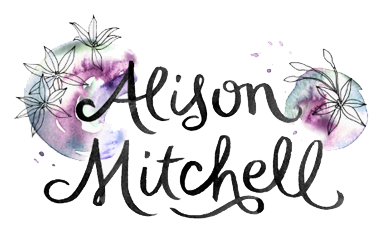The Connection Between Your Gut and Hormonal Health
Have you ever wondered why so many seemingly unrelated health issues—like hormonal acne, period pain, fatigue, and digestive troubles—often appear together? The answer lies in the intricate relationship between your gut and your hormones. From processing nutrients essential for hormone production to eliminating excess oestrogen, your gut plays a pivotal role in keeping your hormones balanced.
In this post, I’ll explore how nurturing your gut can be the key to unlocking better hormonal health and overall well-being.
How Gut Health Influences Hormones
- Microbiome and Hormonal Metabolism
Your gut microbiota—the ecosystem of bacteria in your digestive tract—plays a critical role in regulating hormones. Specific bacteria in the microbiome metabolize and recycle hormones like oestrogen through the “oestrobolome.” An imbalanced microbiome, or dysbiosis, can lead to excess estrogen recirculation, increasing the risk of PMS, endometriosis, and estrogen-dominant conditions. - Nutrient Absorption
The gut is responsible for absorbing key nutrients (like B vitamins, zinc, and magnesium) required for hormone production. Altered absorption can lead to deficiencies of these nutrients which are vital for healthy hormone balance. - Oestrogen Detoxification
It also helps eliminate excess hormones, such as estrogen, through bowel movements. Issues like constipation or dysbiosis may reintroduce excess hormones into circulation, exacerbating imbalances. - Stress and the Gut-Brain Axis
This connection goes both ways, as gut issues can affect stress hormones due to the role of the gut bacteria in production of neurotransmitters and cortisol levels. Chronic stress impacts your gut lining and microbiome diversity, impairing digestion and increasing inflammation. This can disrupt adrenal hormones, leading to fatigue, poor sleep, and heightened PMS symptoms. It’s a vicious cycle. - Histamine and Ovarian Activity
Dysbiosis can cause an overproduction of histamine, a compound involved in immune and allergic responses but also strongly involved in conditions like endometriosis and IBS. High histamine levels can stimulate the ovaries to produce more estrogen, exacerbating conditions like oestrogen dominance and premenstrual symptoms.
Signs Your Gut and Hormones Are Out of Sync
- Persistent digestive issues (bloating, constipation, reflux, nausea, poor appetite or diarrhea).
- Hormonal symptoms like acne, mood swings, or irregular periods.
- Low energy or brain fog that doesn’t improve with sleep or rest.
- Skin conditions such as eczema, acne or easy welting.
Steps to Support Your Gut and Hormonal Health
- Dietary Choices
- Incorporate fibre-rich foods (vegetables, legumes, and whole grains) to feed healthy bacteria.
- Add fermented foods like sauerkraut, kimchi, and kefir, which provide beneficial probiotics (not as much of this if you have histamine issues).
- Have a variety of plant foods to help provide beneficial nutritional compounds and a variety of fibre types, which reduces inflammation in the gut and supports microbiome diversity.
- Limit inflammatory foods, including sugar, alcohol, and processed items, to reduce systemic inflammation
- Supplement Strategically
- Use strain-specific probiotics that are specific to your health concerns to support gut diversity and hormone metabolism. Consult a naturopath to find the right strains for your needs.
- Feed the gut bugs
- Specific prebiotic fibres can help to reduce the overgrowth of bacteria which impair oestrogen detoxification.
- Glucomman, found in konjac noodles are helpful in reducing betaglucoradinase.
- PHGG is a low fodmap prebiotic fibre that is a good allrounder, helping to regulate bowel motions and supporting microbiome balance.
- Stress Management
- Chronic stress and poor sleep disrupt the gut-brain axis, which can dysregulate hormones. Incorporate stress-reduction techniques like yoga, meditation, or gentle walks to calm the nervous system
- Hydration and Gentle Detoxification
- Drinking sufficient water supports bowel regularity and toxin elimination. Simple rituals like starting the day with warm water and lemon or apple cider vinegar can enhance digestion.
- Adequate fibre and water helps with regular bowel motions which is important because you need regular bowel motions to support oestrogen detoxification and clearance.
- Restorative Practices
- Improve sleep to regulate cortisol and support nightly hormone repair.
- Incorporate gentle, restorative exercise, such as walking or pilates, to avoid over-stressing the adrenals.
Long-Term Benefits
Balancing your gut is the foundation for hormonal health. By addressing digestive issues, supporting your microbiome, and managing inflammation, you can improve symptoms such as period irregularities, skin problems, and fatigue.
By healing your gut, you’re not only improving digestion but also empowering your body to regulate hormones naturally. Balanced hormones mean better skin, more energy, fewer mood swings, better hormone balance.
Supporting your gut is a long-term investment in your health. By adopting these practices and seeking personalized care from a naturopath, you can achieve better balance and resilience in both your gut and hormones.
Disclosure: Links to products are affiliate links. This means that, at zero cost to you, I will earn an affiliate commission if you click through the link and finalize a purchase.










